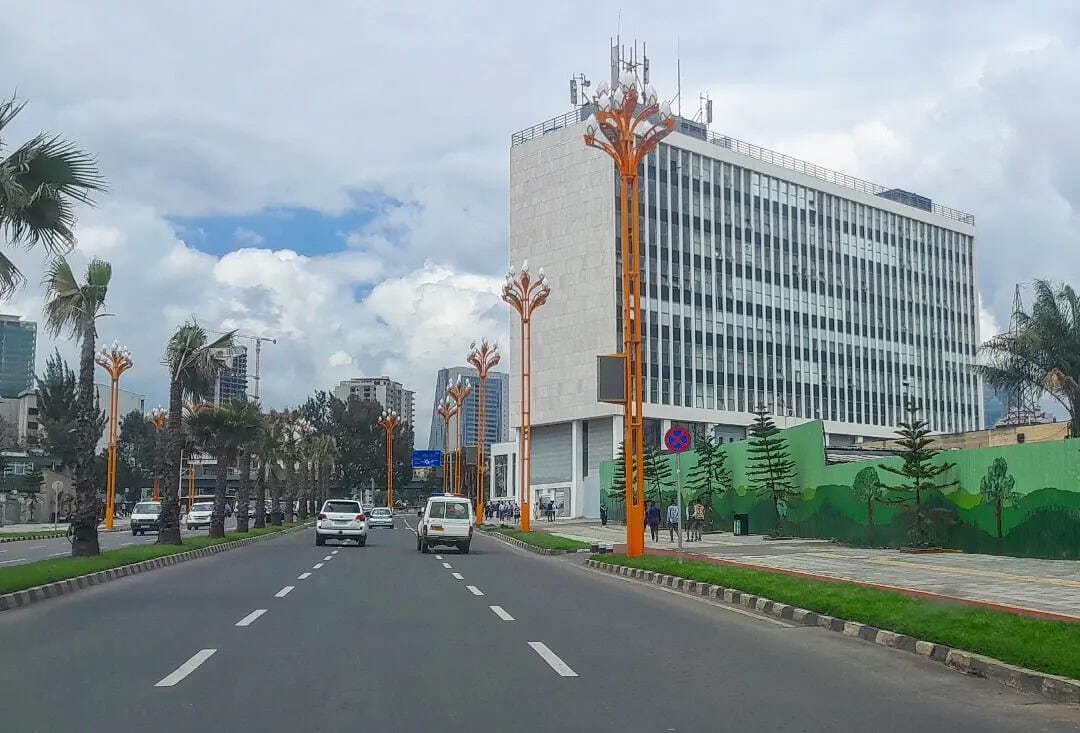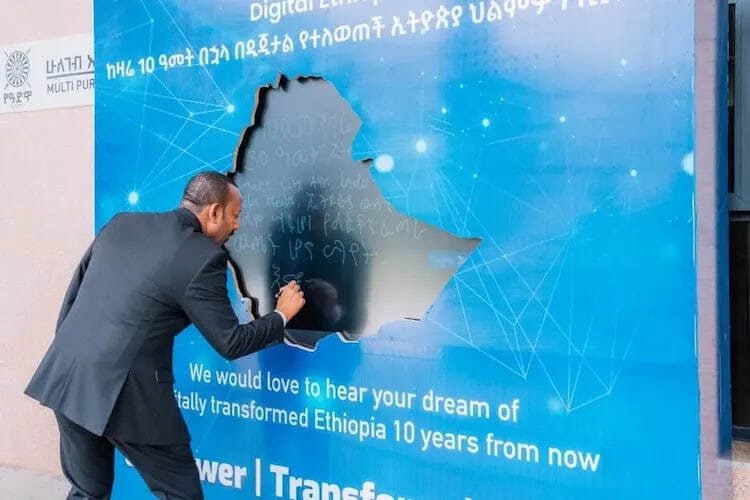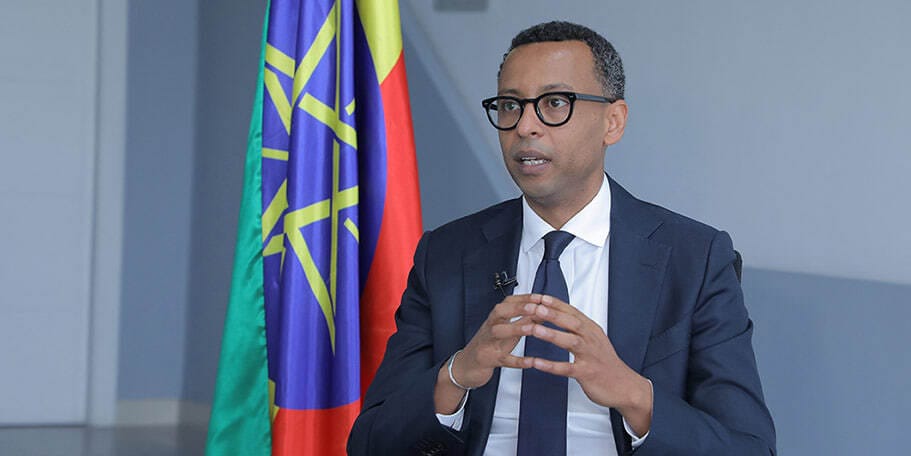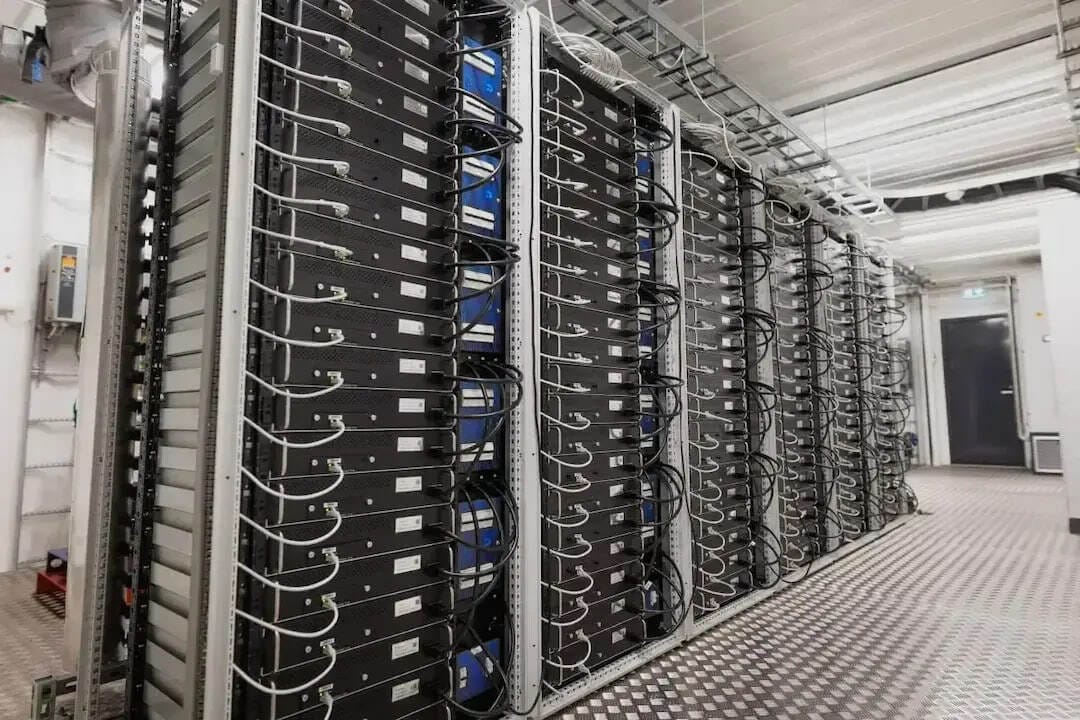Top Stories of the Week
Chambers of Commerce Locked in Dispute over Rights to Mexico Square Headquarters
Digital Ethiopia 2025: Progress, Challenges, and the Road Ahead
Investment Holdings Oversees Leadership Overhaul at Ethiopian Construction Works Corp
EthSwitch Sees Record Profit, Expands Digital Payment Reach
Ethiopia Raises Power Tariffs for Crypto Miners in New Cost-Recovery Drive
Chambers of Commerce Locked in Dispute over Rights to Mexico Square Headquarters

The Ethiopian Chamber of Commerce and Sectoral Associations (ECCSA) has moved to evict the Addis Ababa Chamber of Commerce and Sectoral Associations (AACCSA) from the building the two organizations have shared as a headquarters in Mexico Square, Addis Ababa, for the better part of two decades.
The long-standing dispute boiled over when ECCSA demanded that AACCSA pay monthly rent for the offices it leases within the building, which also houses the offices of seven other chambers of commerce from around the country. Read more.
Meta Picks Safaricom as Landing Partner for New Submarine Cable in Kenya
Meta has picked Safaricom as its local landing partner for a new submarine cable linking Oman and Kenya. The project gives Safaricom direct control over international capacity for the first time, while helping Meta secure a faster and more reliable network for its regional operations. Read more.
Digital Ethiopia 2025: Progress, Challenges, and the Road Ahead

Five years ago, Ethiopia launched an audacious experiment: Digital Ethiopia 2025. Approved amidst a global pandemic, the strategy has reshaped how the state, private sector, and citizens interact.
Nearly 900 government services are now digitized. and there are close to 58 million mobile money users. Yet beyond the headlines, the story is one of uneven progress, strong in fintech and connectivity, but lagging in rural inclusion, e-commerce, and ag-tech.
In the transition to Digital Ethiopia 2030, the question is no longer about ambition, but depth and maturity. Read more.
eQUB and Netherlands RVO Partner to Expand Clean-Cooking Finance for 18,000 Households
eQUB and the Dutch development agency RVO have launched a partnership aimed at scaling access to clean-cooking stoves and carbon-financing solutions. Set to begin in Addis Ababa in 2026, the project will reach around 18,000 households and will leverage community savings groups and the country’s Productive Safety Net Programme to drive inclusive climate action. Read more.
Investment Holdings Oversees Leadership Overhaul at Ethiopian Construction Works Corp

The Ethiopian Construction Works Corporation (ECWC), one of the state-owned enterprises under Ethiopian Investment Holdings (EIH), has overhauled its leadership and board structure, with the reshuffle marking the latest in a series of corporate reforms across government-owned firms.
The decision includes the replacement of the corporation’s Chief Executive Officer and all board members; a move that officials say follows a comprehensive review of the company’s governance and financial standing.
Yonas Ayalew, who led the Corporation for seven years, has been relieved of his position and appointed as a state minister under the Office of the Prime Minister. Read more.
NVIDIA Takes Stake in African Cassava Technologies
Cassava Technologies said it secured investment from US chipmaker Nvidia to help expand the pan-African group’s digital infrastructure services in the more than 30 African countries it operates in. Founded by Zimbabwean billionaire Strive Masiyiwa, Cassava’s subsidiaries provide a fiber optic cable network, data centers, cloud storage, and financial services across the continent. Read more.
Smart Investors Don’t Guess. They Read The Daily Upside.
Markets are moving faster than ever — but so is the noise. Between clickbait headlines, empty hot takes, and AI-fueled hype cycles, it’s harder than ever to separate what matters from what doesn’t.
That’s where The Daily Upside comes in. Written by former bankers and veteran journalists, it brings sharp, actionable insights on markets, business, and the economy — the stories that actually move money and shape decisions.
That’s why over 1 million readers, including CFOs, portfolio managers, and executives from Wall Street to Main Street, rely on The Daily Upside to cut through the noise.
No fluff. No filler. Just clarity that helps you stay ahead.
Central Bank Lifts Credit Cap. But Only for Interest-Free Banks
After years of lobbying, Ethiopia’s interest-free banks have secured a major policy victory. The National Bank of Ethiopia (NBE) has lifted the credit cap, a restriction executives say long constrained their growth and left them at a disadvantage compared with conventional lenders. Read more.
EthSwitch Sees Record Profit, Expands Digital Payment Reach

EthSwitch, the national switch operator, reported a record 1.4 billion Birr gross profit for the fiscal year ending June 2025, a 34pc increase from last year’s 1.06 billion Birr.
The national switch processed 287.4 million interoperable transactions valued at 741.1 billion Birr. Interoperable person-to-person (P2P) transfers accounted for 128.3 million transactions worth 577.7 billion Birr, up 158 percent from the previous year. Read more.
What’s on Our Mind
Debating Poverty Won’t Defeat It
Two weeks ago, the World Bank released a poverty and equity assessment projecting Ethiopia’s national poverty rate to rise to 43 percent in 2025, up from 39 percent just four years ago. Senior government officials swiftly pushed back. Fitsum Assefa (PhD), the Minister of Planning & Development, dismissed the findings as “misleading” during her Ministry’s 100-day performance review. She argued the assessment failed to account for pro-poor interventions—school meal programs among them. And she took particular issue with the Bank’s poverty threshold, around 450 Birr per day, saying it ignored “the inclusive development currently happening in the country.”
Her remarks were not merely academic. She insisted that government figures—and only government figures- should be treated as official. Yet this is not the first warning sign. A multidimensional poverty index published last October indicated that roughly 67 percent of Ethiopia’s population, more than 80 million people, are considered multidimensionally poor. The numbers differ, but the direction of travel is hard to miss.
Data is a slippery business in developing economies, where measurement systems are fragile and information flows are anything but smooth. Ethiopia’s own challenges are well-documented: fragmented agencies, siloed statistics, and limited transparency. These structural weaknesses ensure any dataset can be contested, especially when the political stakes are as high as poverty counts.
Consider this: it has been nearly two decades since Ethiopia last conducted a national census. In that context, debating accuracy is not only predictable, it is inevitable. But the World Bank’s reasoning rings painfully familiar: war, pandemic disruptions, and runaway inflation have weighed heavily on households across the country. In a nation where millions have been displaced and consumer prices remain volatile, it requires no statistical wizardry to understand that the poor are becoming poorer.
The more urgent task, then, is not litigating methodology but acknowledging the lived reality behind the numbers. How do we cushion vulnerable families? What policies genuinely lift incomes in the face of compounding crises? Academic rigor, independent feedback and data-driven policymaking are not luxuries, they are lifelines.
Ethiopia’s future depends less on contesting poverty figures than on confronting them.
Ethiopia Raises Power Tariffs for Crypto Miners in New Cost-Recovery Drive

Ethiopia’s state power utility is tightening its stance on crypto mining. Starting Dec. 1, Ethiopian Electric Power will introduce time-of-use and availability-based tariffs for data miners, replacing the long-standing flat rate of a little above 3.14 US¢/kWh.
The move comes a few months after the state-owned power provider announced it would no longer issue new permits for bitcoin miners. By penalizing inconsistent operations and charging more during peak hours, EEP says it will stabilize the grid while ensuring financial sustainability. Read more.
Ethiopia’s Next Great Dam Should Be for Forex: Guest Contribution
In his guest commentary, Eyasu Theodros argues that Ethiopia’s next great national project should center on foreign exchange. He draws a parallel between GERD and the financial systems Ethiopia must now build, calling for the same imagination and structure that made GERD possible. Read more.
Heads Up: What’s Coming & What to Catch
From Our Bookmarks

